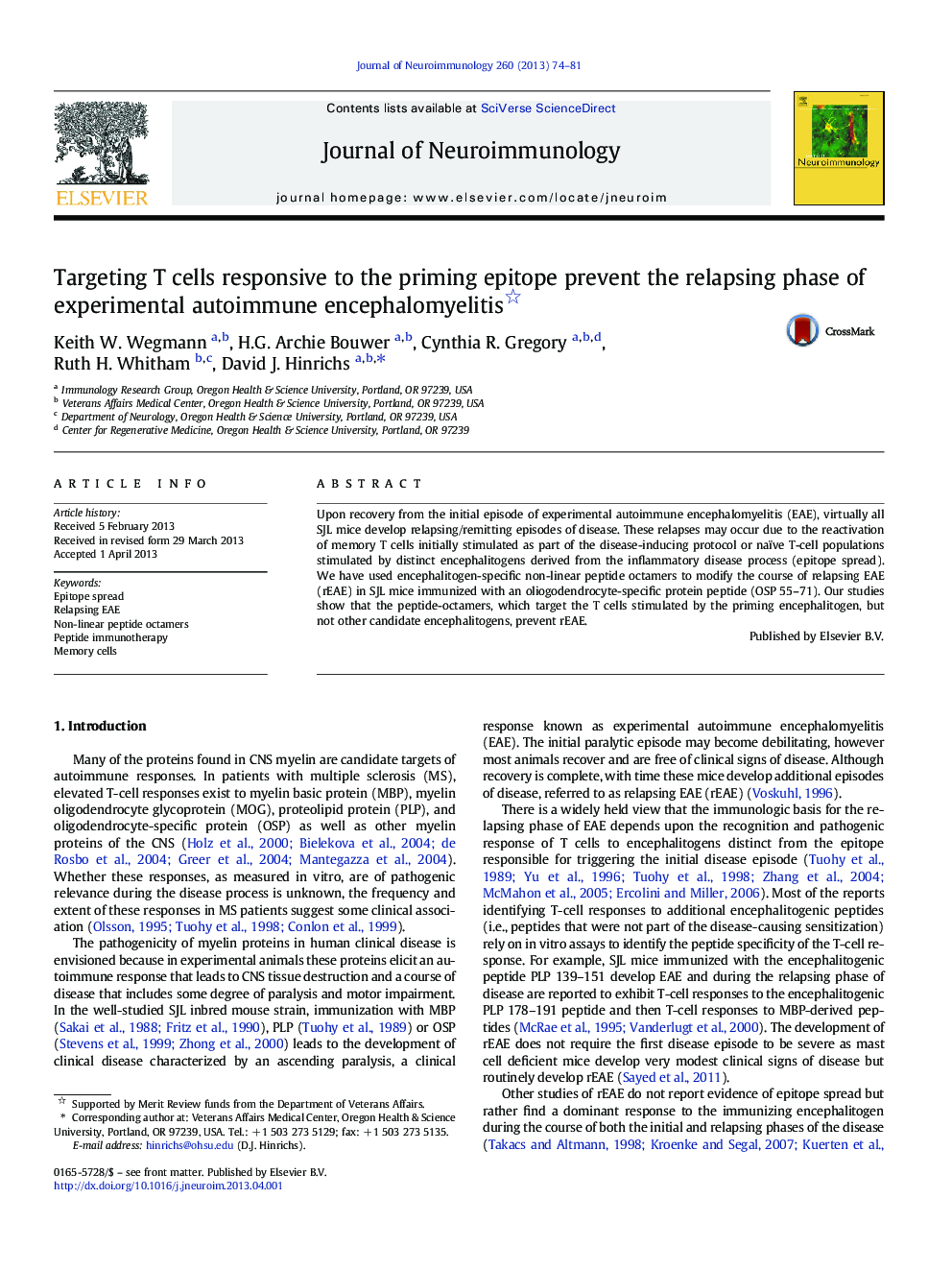| Article ID | Journal | Published Year | Pages | File Type |
|---|---|---|---|---|
| 3064274 | Journal of Neuroimmunology | 2013 | 8 Pages |
•Relapsing EAE develops following recovery from primary disease•Prevention of the relapse phase occurs with peptide specific reagents•Peptide reagents targeting the primary disease inducing epitope prevent relapse•Pathogenic epitope spread does not appear to play a role in this model of EAE
Upon recovery from the initial episode of experimental autoimmune encephalomyelitis (EAE), virtually all SJL mice develop relapsing/remitting episodes of disease. These relapses may occur due to the reactivation of memory T cells initially stimulated as part of the disease-inducing protocol or naïve T-cell populations stimulated by distinct encephalitogens derived from the inflammatory disease process (epitope spread). We have used encephalitogen-specific non-linear peptide octamers to modify the course of relapsing EAE (rEAE) in SJL mice immunized with an oliogodendrocyte-specific protein peptide (OSP 55–71). Our studies show that the peptide-octamers, which target the T cells stimulated by the priming encephalitogen, but not other candidate encephalitogens, prevent rEAE.
